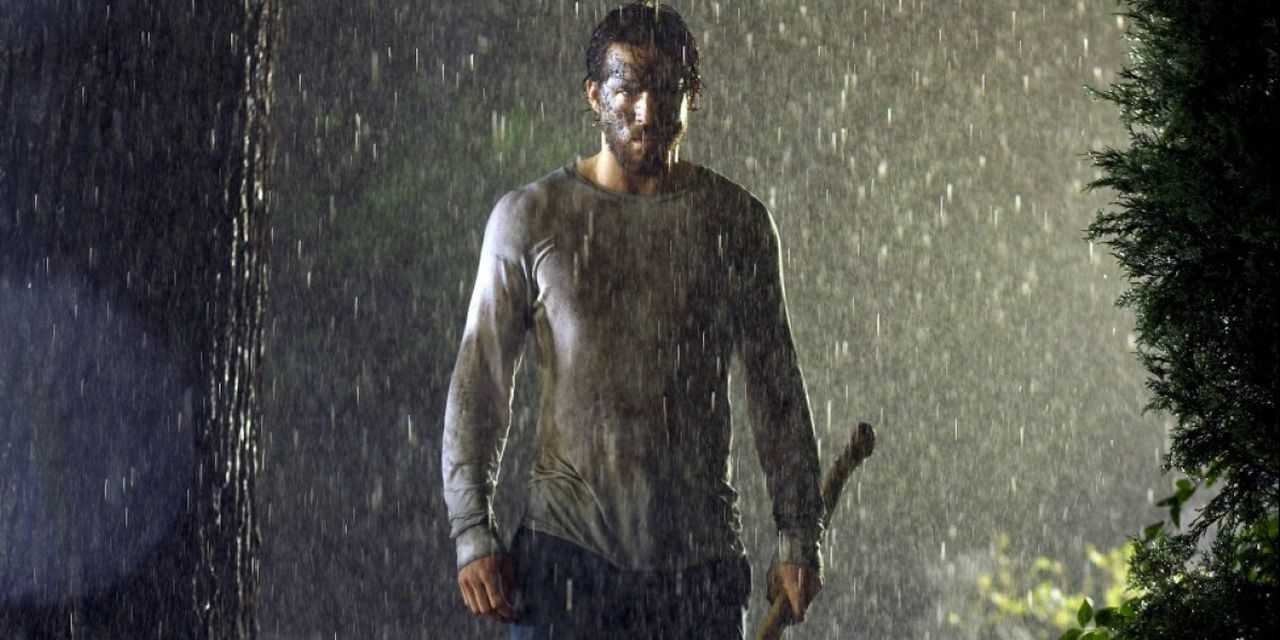Lifetime’s ‘Murder for Mortgage: Secrets on Maple Street’ is one of the films in the ‘Maple Street’ trilogy released by the network. Directed by Paula Elle, the film follows a new couple who move into a new home. This familiar trope sets the stage for unraveling secrets that leave the couple baffled and searching for answers in unexpected places. Carlee and Alex, looking for a house with a lower mortgage, move into a home on Maple Street. They believe their purchase is a great deal, considering the old lady who previously owned the house allegedly committed suicide there, and the incident lowered the rates for the home.
The neighborhood is seemingly quiet and peaceful, but things change when eerie occurrences, strange noises, and unexplained unease pervade the couple’s life, especially Carlee’s. She believes something is wrong, and what they discover is that the previous owner’s death was not a suicide but a murder. The neighborhood they thought was idyllic holds more secrets than the couple could ever imagine. The fear of the unknown and constant discomfort follow the audience as they uncover answers along with the protagonists. The reality with which the film is portrayed makes viewers wonder if such occurrences are based on a true story.
Murder for Mortgage Secrets on Maple Street Exemplifies Universal Human Emotions
While ‘Murder for Mortgage: Secrets on Maple Street’ is a fictional tale skillfully weaved together by Adam Rockoff, it draws on elements that resonate with genuine human experiences. The story of a couple uncovering dark secrets in their new home taps into universal fears and behaviors. The fear of the unknown, the unsettling feeling that something is wrong, and the natural human tendency to seek answers in the face of unexplained occurrences all contribute to the film’s sense of realism. These psychological elements make the fictional narrative feel plausible, reflecting how people often respond to mysterious and frightening real-life situations.

In real life and similar movies, unsettling occurrences and the fear of the unknown often lead to the discovery of dark secrets. These narratives resonate because they mirror events where seemingly idyllic settings conceal sinister truths. For example, in the 2005 film ‘The Amityville Horror,’ a family’s experiences in their haunted house are based on the real-life claims of the Lutz family, who reported paranormal activities after moving into a home where a gruesome murder had occurred. Such stories captivate audiences because they tap into the primal fear that hidden horrors may be waiting to be uncovered behind closed doors.
Cinema Mirrors the Society That it Stems From
The nerve that such tropes touch has also been used in other films. For example, released in 2021, ‘Aftermath’ tells the story of a young couple, Natalie and Kevin Dadich, who move into a new home to start afresh and save their struggling marriage. The house, offered at an attractive price, has a dark history tied to the previous owners’ murder-suicide. Soon after moving in, Natalie and Kevin experience a series of unsettling events, including strange noises, mysterious stains, and threats that escalate in intensity, making their dream home feel increasingly like a prison.

Determined to uncover the truth, Natalie and Kevin delve into the house’s past, discovering a hidden room where a man named Otto, obsessed with the former female owner, had been living secretly. Otto’s obsession drove him to murder the previous occupants and stage it as a murder-suicide. As the couple unravels this dark secret, they find themselves in a deadly confrontation with Otto, who has been hiding within their home all along. Their determination and teamwork ultimately lead to Otto’s capture, allowing them to reclaim their home and find renewed hope in their relationship.
‘Aftermath’ draws from the real-life experiences of Jerry Rice and Janice Ruhter, who encountered unsettling threats and harassment after purchasing their dream home in San Diego. They were allegedly harassed by a woman named Kathy Rowe, who had lost the bid on the house to them, and many minute details from the case were borrowed for the film, too. In conclusion, one can say that even though ‘Murder for Mortgage: Secrets on Maple Street’ does not directly derive from any actual occurrences, the precedence of similar reel and real-life stories make it an essential and relevant film.
Read More: Lifetime’s A Family Nightmare Secrets on Maple Street: Is it a True Story?


